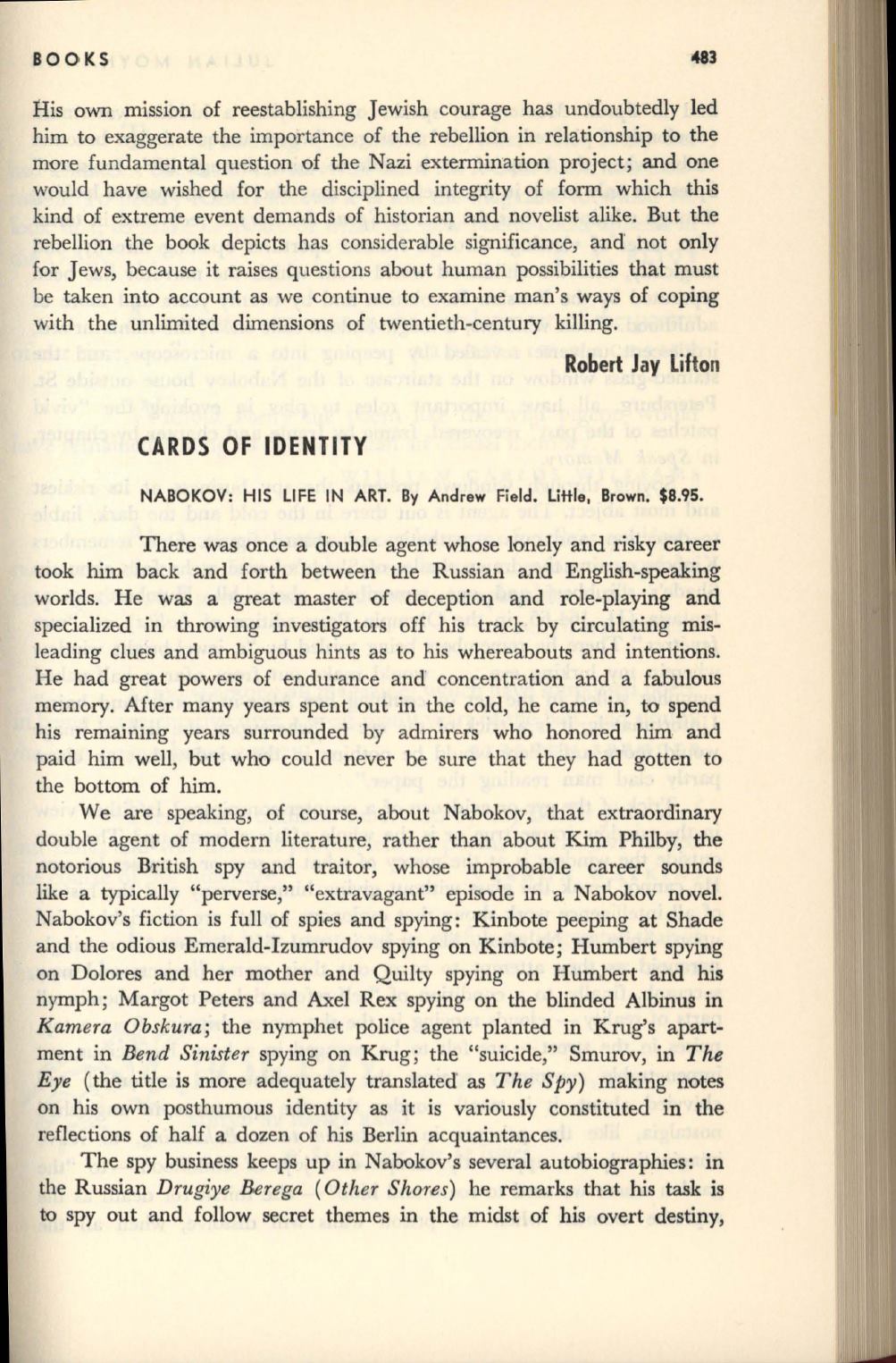
BOOKS
483
His own mISSIOn of reestablishing Jewish courage has undoubtedly led
him to exaggerate the importance of the rebellion in relationship to the
more fundamental question of the Nazi extermination project; and one
would have wished for the disciplined integrity of form which this
kind of extreme event demands of historian and novelist alike. But the
rebellion the book depicts has considerable significance, and not only
for Jews, because it raises questions about human possibilities that must
be taken into account as we continue to examine man's ways of coping
with the unlimited dimensions of twentieth-century killing.
Robert Jay Lifton
CARDS OF IDENTITY
NABOKOV: HIS LIFE IN ART. By Andrew Field. Little, Brown. $8.95.
There was once a double agent whose lonely and risky career
took him back and forth between the Russian and English-speaking
worlds. He was a great master of deception and role-playing and
specialized in throwing investigators off his track by circulating mis–
leading clues and ambiguous hints as to his whereabouts and intentions.
He had great powers of endurance and concentration and a fabulous
memory. After many years spent out in the cold, he came in, to spend
his remaining years surrounded by admirers who honored him and
paid him well, but who could never be sure that they had gotten to
the bottom of him.
We are speaking, of course, about Nabokov, that extraordinary
double agent of modern literature, rather than about
Kim
Philby, the
notorious British spy and traitor, whose improbable career sounds
like a typically "perverse," "extravagant" episode in a Nabokov novel.
Nabokov's fiction is full of spies and spying: Kinbote peeping at Shade
and the odious Emerald-Izumrudov spying on Kinbote; Humbert spying
on Dolores and her mother and Quilty spying on Humbert and his
nymph; Margot Peters and Axel Rex spying on the blinded Albinus in
Kamera Obskura;
the nymphet police agent planted in Krug's apart–
ment in
Bend Sinister
spying on Krug; the "suicide," Smurov, in
The
Eye
(the title is more adequately translated as
The Spy)
making notes
on his own posthumous identity as it is variously constituted in the
reflections of half a dozen of his Berlin acquaintances.
The spy business keeps up in Nabokov's several autobiographies: in
the Russian
Drugiye Berega (Other Shores)
he remarks that his task is
to spy out and follow secret themes in the midst of his overt destiny,


